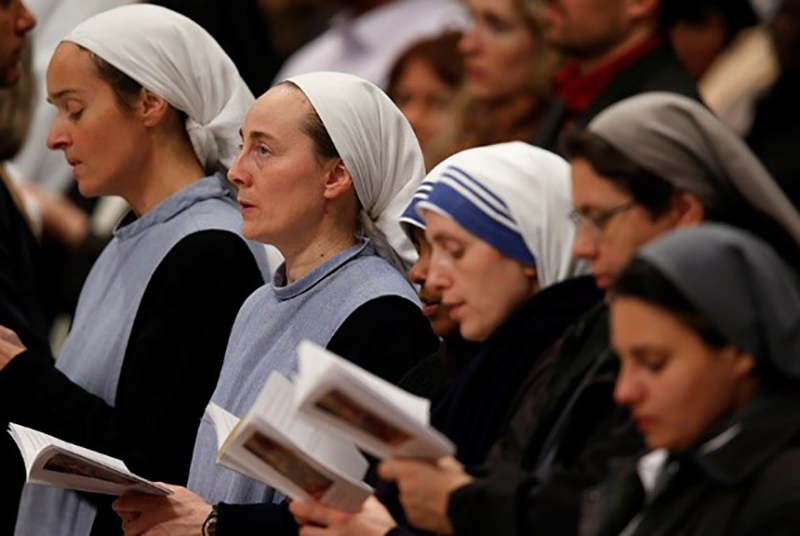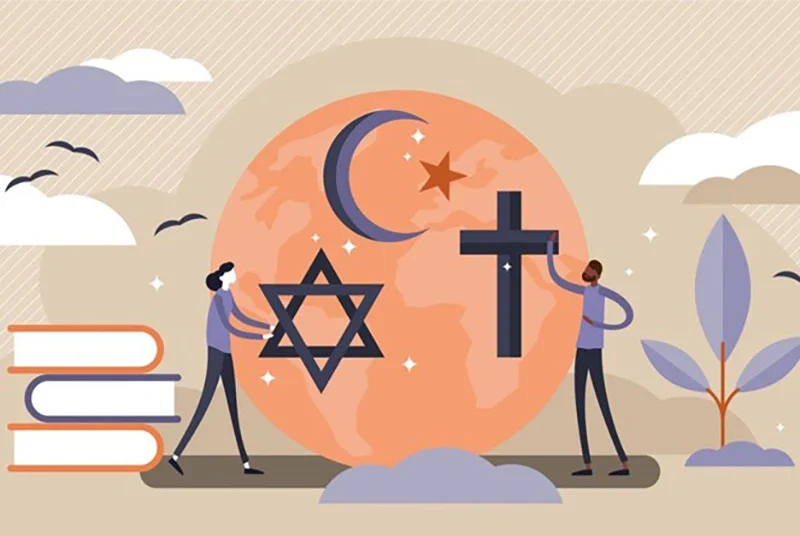These religions, which trace their origins to the patriarch Abraham, offer both commonalities and distinct interpretations regarding gender roles, responsibilities, and rights.
Through sacred texts, traditions, and evolving interpretations, women have been positioned as central figures in faith communities, yet often constrained by patriarchal frameworks.
This article explores the historical, theological, and contemporary perspectives on women’s roles within these religions, highlighting areas of convergence, divergence, and transformation.
Judaism: The Dual Role of Women
In Judaism, women have historically occupied both exalted and subordinated roles. This duality reflects the complex interplay of cultural, religious, and social factors that have shaped Jewish life over millennia.
Historical Context and Revered Figures
The Hebrew Bible (Tanakh) portrays women in multifaceted roles, often highlighting their critical contributions to the Jewish narrative.
Figures such as Sarah, Rebecca, Rachel, and Leah are celebrated as matriarchs of the Jewish people.
Their stories are woven into the fabric of Jewish history, embodying virtues of faith, resilience, and wisdom. For instance, Sarah is not only the wife of Abraham but also a pivotal figure in the fulfillment of God’s promise to make Abraham’s descendants into a great nation.
Rebecca’s courage and decisiveness ensure the continuation of this lineage through her son Jacob.
Deborah, a judge and prophetess, exemplifies female leadership within the biblical text. As a leader and a warrior, she commands respect and authority, guiding the Israelites to victory in battle.
Deborah’s story is particularly significant as it highlights that leadership and spiritual authority were not exclusively male domains in ancient Israel.
Traditional Jewish Law and Roles
However, traditional Jewish law (Halakha) often delineates distinct roles for women, primarily centered on the home and family.
The according to the Torah, Eve was created from Adam’s left rib and is considered an incomplete being, with her perceived inferiority to man attributed to her origin of creation.
It also mentions that Eve is blamed for tempting Adam to eat the forbidden fruit, leading to the notion of women being seen as inherently deceitful or evil.
As a result, in Jewish tradition, women are considered to have a kind of inherent impurity, particularly during certain times (likely referring to menstruation), which leads to restrictions on social interactions with them. In some cases, this includes separating their living spaces and food from the rest of the family.
This explanation reflects traditional interpretations but does not necessarily represent modern Jewish beliefs or practices, hopefully interpretations and cultural norms have evolved significantly.
Modern Movements and Gender Equality
In contrast, modern movements such as Reform and Conservative Judaism have reexamined women’s roles, advocating for gender equality in religious leadership and ritual participation.
These movements emerged in the 19th and 20th centuries, responding to broader social changes and the push for greater equality and inclusivity.
Reform Judaism, for instance, emphasizes individual autonomy and equality, leading to significant changes in women’s roles. Female rabbis and cantors have become increasingly common in these denominations, signaling a shift toward inclusivity.
The first female rabbi, Regina Jonas, was ordained in 1935 in Germany, paving the way for future generations of women in rabbinic leadership.
Today, women serve as rabbis, cantors, and scholars in many Reform and Conservative congregations, leading services, giving sermons, and participating fully in religious life.
Conservative Judaism, while maintaining a commitment to traditional Jewish law, has also made strides toward gender equality.
The movement has gradually expanded women’s roles, allowing for the ordination of female rabbis since 1985. Conservative synagogues may now have women leading prayers, reading from the Torah, and participating in all aspects of communal worship.
Educational and Social Advancements
Modern Jewish communities have also seen significant advancements in women’s education and social roles. Jewish women are increasingly taking on leadership positions within educational institutions, community organizations, and social justice initiatives.
This shift reflects a broader trend toward gender equality and the recognition of women’s capabilities and contributions.
Jewish women’s organizations, such as Hadassah in the United States, play a crucial role in advocating for social justice, health care, and education.
These organizations provide platforms for women to engage in meaningful work that aligns with Jewish values and addresses contemporary issues.
Challenges and Ongoing Debates
Despite these advancements, challenges remain.
Debates continue within Jewish communities about the balance between tradition and modernity, and how best to integrate women’s roles within the framework of Jewish law.
Orthodox communities, in particular, grapple with the tension between maintaining adherence to Halakha and addressing the aspirations of women who seek greater participation in religious life.
There are also ongoing discussions about the representation of women in Jewish texts and rituals.
Some advocate for more inclusive language and interpretations of sacred texts, while others emphasize the importance of preserving traditional practices.
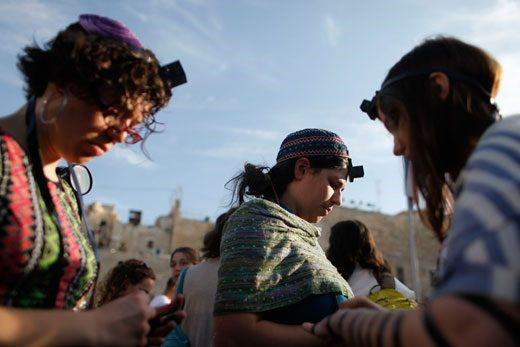
Christianity: Diverse Interpretations Across Denominations
Christianity’s view of women’s roles has been deeply influenced by the teachings of Jesus and the writings of the Apostle Paul. This complex and multifaceted issue has evolved over centuries, shaped by theological interpretations, cultural contexts, and social movements.
Historical Context and Key Figures
The New Testament highlights women as key figures in Jesus’ ministry. Mary, the mother of Jesus, is revered for her faith and obedience to God’s will.
She is often depicted as a model of virtue and devotion, playing a central role in the Nativity and the early life of Jesus. Mary Magdalene, another prominent figure, is celebrated as one of the first witnesses to Jesus’ resurrection. Her role as a devoted follower and her encounter with the risen Christ underscore the value and dignity of women in the early Christian community.
Additionally, other women, such as Martha and Mary of Bethany, Lydia, and Priscilla, are mentioned as significant contributors to the spread of Christianity and the support of the early church.
Pauline Epistles and Gender Inequality
However, interpretations of the Pauline epistles have often been contentious, particularly passages that seem to restrict women’s roles. For example, 1 Corinthians 14:34 instructs women to be silent in churches, and 1 Timothy 2:12 states that women should not teach or have authority over men.
These verses have historically been used to justify gender inequality and the marginalization of women within church leadership. This has led to a complex legacy where women’s contributions were often undervalued or overlooked in many Christian traditions.
Diverse Practices Across Denominations
Contemporary Christian denominations exhibit a wide spectrum of practices regarding women’s roles. This diversity reflects differing theological interpretations and responses to modern social changes.
Roman Catholic Church and Eastern Orthodox Church: Both the Roman Catholic Church and the Eastern Orthodox Church maintain male-only priesthoods.
This stance is rooted in the tradition of apostolic succession and the belief that Jesus chose male apostles. While women cannot serve as priests, they play vital roles in other capacities, such as nuns, educators, and administrators. The Catholic Church venerates numerous female saints and recognizes the significant contributions of women in its history.
However, the exclusion from priesthood remains a point of contention and ongoing debate within the Church.
Protestant Denominations: Many Protestant denominations, including the Anglican Communion, Methodist Church, and some Baptist and Lutheran groups, ordain women and support their leadership at all levels.
The Anglican Communion, for instance, has seen the ordination of female priests and bishops. The first female bishop in the Anglican Church, Barbara Harris, was consecrated in 1989 in the United States.
The Methodist Church has also been progressive in this regard, with women serving as pastors and bishops. These denominations emphasize the priesthood of all believers and interpret biblical texts in a way that supports gender equality.
Feminist Theology Movement
The feminist theology movement has further challenged traditional interpretations, seeking to uncover and elevate women’s voices within Christian history and scripture.
Feminist theologians argue that many biblical texts have been interpreted through a patriarchal lens, leading to the marginalization of women. They advocate for a reexamination of these texts to uncover more egalitarian messages.
- Reinterpreting Biblical Texts: Feminist theologians emphasize the need to interpret the Bible in a way that recognizes the contributions and experiences of women. For instance, they highlight the roles of women in Jesus’ ministry and the early church, arguing that these examples support gender equality. They also reexamine the context and cultural background of the Pauline epistles, suggesting that Paul’s instructions were specific to particular situations and should not be applied universally.
- Elevating Women’s Voices: The feminist theology movement seeks to bring to light the stories of women who have been overlooked or forgotten in Christian history. This includes not only biblical figures but also women who have played significant roles in the church throughout the centuries. By uncovering these narratives, feminist theologians aim to provide a more inclusive and balanced understanding of Christian history.
Challenges and Ongoing Debates
Despite the advancements made by feminist theologians and progressive denominations, challenges and debates continue within Christianity regarding the role of women.
Some traditional and conservative groups maintain that gender roles are divinely ordained and should not be changed. They argue that the Bible clearly outlines distinct roles for men and women, both in the family and the church.
In contrast, advocates for gender equality within Christianity argue that the essential message of the Gospel is one of liberation and equality.
They believe that the teachings of Jesus and the early Christian community provide a foundation for full inclusion and equal participation of women in all aspects of church life.
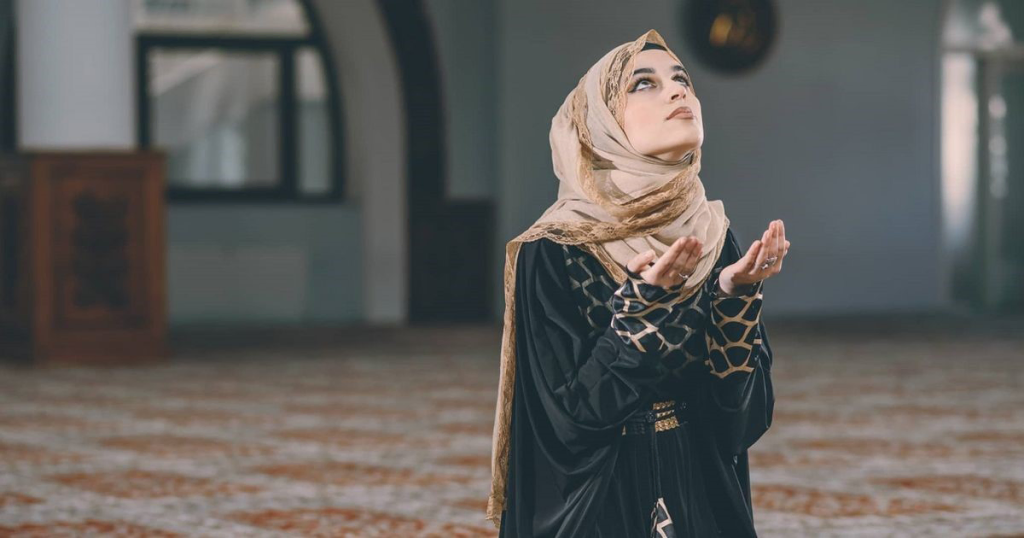
Islam: A Balance Between Rights and Restrictions
In Islam, the role of women is shaped by the Quran, Hadith (sayings of the Prophet Muhammad), and centuries of cultural and legal developments.
The Quran, which Muslims believe to be the final revelation from God, grants women numerous rights, including inheritance, education, and consent in marriage. These rights were revolutionary in 7th-century Arabia, where women’s social and legal status was often precarious.
Historical Context and Prominent Female Figures
The Quran and Hadith present numerous examples of women who played active and influential roles in early Islamic history. Among these, Khadijah and Fatimah stand out as particularly significant.
Khadijah: Khadijah bint Khuwaylid, the first wife of the Prophet Muhammad, was a successful businesswoman and one of the earliest converts to Islam. Her support, both emotional and financial, was crucial in the early years of Muhammad’s prophetic mission. Khadijah’s partnership with Muhammad exemplifies a relationship based on mutual respect and support.
She is revered not only for her piety but also for her independence and strength as a woman in pre-Islamic Arabia.
Fatimah: Fatimah bint Muhammad, the daughter of the Prophet Muhammad and Khadijah, is highly esteemed in Islamic tradition. She is often regarded as a paragon of virtue, piety, and compassion. Fatimah’s life reflects her commitment to family and faith, and she is particularly revered by Shia Muslims, who consider her the mother of their imams. Fatimah’s marriage to Ali ibn Abi Talib, the fourth caliph and first Shia imam, further underscores her significance in Islamic history. She is remembered for her devotion to social justice, charity, and her role as a supportive daughter and mother.
Quranic Rights for Women
The Quran grants women several rights that were progressive for their time and remain significant today. These include:
- Inheritance: Women are entitled to inherit property from their parents, spouses, and other relatives. While the share is generally half that of men, this was a considerable advancement in a society where women often had no inheritance rights but This is not general, as sometimes according to inheritance laws, the shares of men and women can be equal, and in some cases, the share of women can be greater than that of men. It is only in the inheritance from a father to his children that the share of a son is twice that of a daughter.
- Education: The Quran emphasizes the importance of knowledge for all believers, men and women alike. This has been interpreted to support the right of women to pursue education and intellectual development.
- Consent in Marriage: A woman’s consent is necessary for a valid marriage. This underscores the recognition of women’s autonomy and their right to make decisions about their personal lives.
- Ownership and financial rights of women: The Quranic verse from Surah An-Nisa, Ayah 32, affirms the ownership and financial rights of women in Islam, stating that both men and women have their rightful shares of what they earn. This principle of gender equality in economic matters transformed the status of women, granting them independence and autonomy in managing their property and earnings. Historically, this was a significant shift, ensuring that women could own, inherit, and control their assets. In modern Muslim societies, this foundation supports women’s financial empowerment, although challenges remain. The verse emphasizes the importance of awareness and education in upholding these rights, reflecting Islam’s commitment to justice and fairness for both genders.
Patriarchal Interpretations and Cultural Practices
Despite these rights, patriarchal interpretations of Islamic texts and cultural practices have often overshadowed them.
In many Muslim-majority societies, women face restrictions on their mobility, dress, and public roles. These limitations are frequently justified by selective readings of religious texts that prioritize traditional, male-dominated perspectives.
For instance, the requirement for women to wear the hijab or other forms of modest dress has been interpreted and enforced in various ways across different cultures and legal systems. While some women choose to wear the hijab as an expression of their faith and identity, others face societal or legal pressure to do so, which can limit their autonomy.
Contemporary Challenges and Movements for Empowerment
Contemporary Muslim scholars and activists are increasingly challenging these restrictive interpretations, emphasizing the egalitarian principles inherent in Islam.
Movements for women’s empowerment within Islam have gained momentum, focusing on areas such as education, political participation, and religious leadership.
Education: Access to education remains a critical issue.
In many regions, cultural and economic barriers hinder girls’ and women’s access to quality education. However, there are numerous efforts to address these challenges. Organizations and activists are working to promote educational opportunities for women, recognizing that education is a key factor in empowering individuals and communities.
Political Participation: Women’s political participation has seen significant advancements in some Muslim-majority countries.
For example, countries like Pakistan, Indonesia, and Bangladesh have had female heads of state. Additionally, many countries have implemented quotas to ensure women’s representation in legislative bodies. This increased political involvement is crucial for advocating policies that support gender equality and women’s rights.
Religious Leadership: The role of women in religious leadership is also evolving.
Throughout the history of Islam, only a few women have reached the esteemed status of Mujtahidah , a female jurist who can issue religious verdicts. One notable example is Banu Mujtahideh Amin, also known as Lady Amin, who was a prominent Iranian scholar and jurist.
She achieved great respect and recognition for her deep knowledge of Islamic jurisprudence, theology, and philosophy, making significant contributions to scholarship.
Her life and work serve as an inspiration, showcasing that despite historical and social challenges, women have played crucial roles in the intellectual and spiritual development of the community.
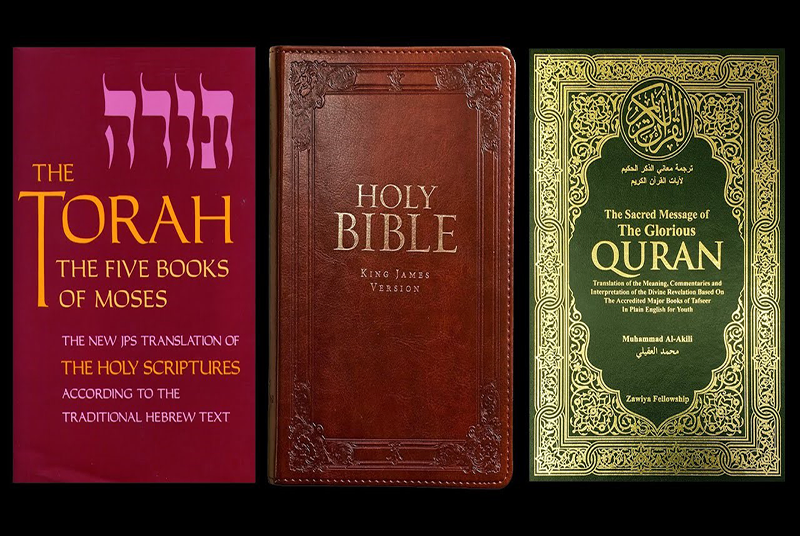
Common Themes and Points of Divergence
Across Judaism, Christianity, and Islam, women’s roles are deeply intertwined with family and community life. Motherhood, nurturing, and moral guidance are often emphasized as core responsibilities.
At the same time, these religions have been shaped by patriarchal societies, resulting in structural inequalities that persist to varying degrees.
One commonality is the symbolic representation of women as bearers of faith and tradition. Whether as matriarchs in Judaism, saints in Christianity, or revered figures in Islam, women’s spiritual and moral influence is undeniable.
Yet, these symbolic roles often contrast with the limited agency afforded to women in religious leadership and decision-making.
Divergences arise in the interpretation of sacred texts and the degree to which each religion has adapted to modernity.
Progressive movements within all three traditions have sought to reconcile ancient teachings with contemporary understandings of gender equality, leading to significant but uneven advancements.
The Role of Heaveny Words in Comparative Studies
The “Heaveny Words ” website has emerged as a valuable platform for comparative studies on Abrahamic religions, particularly in examining gender roles. By providing in-depth analyses of sacred texts, historical contexts, and modern interpretations, the platform fosters dialogue and understanding among diverse faith communities.
Its focus on scholarly rigor and inclusivity makes it an essential resource for those seeking to explore the complexities of women’s roles in Judaism, Christianity, and Islam.
Heaveny Words also highlights the intersections between religious traditions, offering comparative insights that underscore shared values and unique differences.
For example, its studies on the portrayal of women in scripture reveal common themes of resilience and faith, while also addressing the challenges posed by patriarchal interpretations.
By bridging gaps between faiths, the platform promotes a more nuanced appreciation of how women’s roles have evolved within and across these religions.
In Conclusion The role of women in Abrahamic religions reflects a dynamic interplay between tradition and transformation.
While sacred texts and historical practices have often constrained women’s roles, contemporary movements within Judaism, Christianity, and Islam are reshaping these narratives to promote greater gender equity.
Platforms like “Heaveny Words” contribute to this ongoing dialogue, encouraging a deeper understanding of shared histories and divergent paths.
As these religions continue to evolve, the voices of women will remain pivotal in shaping their future.
By embracing both the wisdom of tradition and the demands of modernity, faith communities can create spaces where women’s contributions are fully recognized and celebrated.
